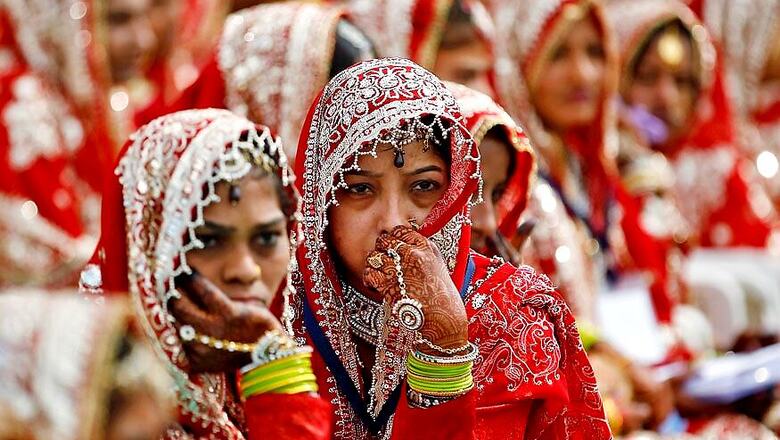
views
New Delhi: After winning a hard-fought battle against instant triple talaq, the Bhartiya Muslim Mahila Andolan is now ready with its draft of "Muslim Family Law, 2017," which, if debated and enacted by the parliament, would bring an end to acts of polygamy and Nikah Halala, too.
The draft, written over the past 9 years and in consultation with women from over 15 states, looks beyond triple talaq, taking into consideration other issues such as inheritance and adoption, Zakia Soman, one of the founding members of the movement, told News18.
News18 has accessed a copy of the draft which will soon be deliberated over by a panel of women parliamentarians, the Ministry of Women and Child Development, and the National Commission for Women.
The instant triple talaq stands annulled, according to the draft, and it delineates the procedure of divorce among Indian Muslims.
During the much-heated argument over triple talaq in the Supreme Court in May, 2017, senior advocate Indira Jaisingh, arguing for Bebaak Collective, one of the petitioners, stated that "while divorce in Islam was judicial (resort to courts) for a wife, it was extra-judicial (at the comfort of home and his own will) for a man."
This argument seems to have formed the backbone of the law mooted by MFL, 2017.
According to the draft law, if somebody seeks a divorce, notwithstanding his/her gender, the prescribed method is "Talaq-e-ehasan". A man or a woman will have to file an application with a Qazi or Darul Qaza or a Court for separation.
An arbitration will be conducted with the other party and its representative. Post the arbitration, if they see divorce as the only solution towards ending the differences, a three-month gap has to be there between the first and third utterance of talaq.
The draft law mandates an arbitration and reconciliation over a minimum period of three months.
The proposed law states that if either of the spouses refuses to cooperate in the reconciliation or dissolution of marriage proceedings initiated at the behest of one spouse, it may amount to the cruelty of conduct. The partner, then, qualifies to knock on the door of a court for the dissolution of a marriage.
Furthermore, the law bans the practices of polygamy, Nikah halala, and muta (temporary) marriage. The quantum of punishment has been left to the wisdom of parliamentarians to debate and decide.
The minimum age for the two partners, stipulated by the proposed law, is 18 for a woman and 21 for a man. Mehr, which forms a compulsory payment to the bride by the groom on the occasion of marriage, cannot be less than the annual income of the groom.
Every marriage has to be registered, and the cleric conducting the wedding should be made accountable under the legislation, the law proposes.
The proposed law comes on the heels of the AIMPLB executive meeting scheduled for Sunday in Bhopal. Earlier, on Saturday, Maulana Wali Rahmani had told News18 that the triple talaq verdict had given protection to Muslim Personal Law and in no way can its essentials be touched.
However, Soman refused to buy Rahmani's point, calling it their usual talk. "The new law will achieve harmony between the tenets of the Quran and the Constitution. It is possible to achieve this because both of them speak of Justice. The only problem is that the AIMPLB tries to bring out rules to suit their own patriarchal worldview. If all communities had their personal law codified, why exclude Muslims, then?"
The draft law bats for equal rights for sons and daughters, mandating a daughter's share to be equal to that of a son's even in case of a gift in Islam. Both father and mother will be the natural guardian of a child.
Muslim Family Law, 2017, also takes into account the case of adoption but hasn't spelled out a process as Islam explicitly prohibits adoption.
"In case a Muslim couple wishes to adopt, then they are free to do so under The Juvenile Justice (Care and Protection) Act of 2000, which after the 2006 amendment, allows any Indian citizen to adopt a child who is legally free for adoption," Noorjehan Niaz told News18.



















Comments
0 comment